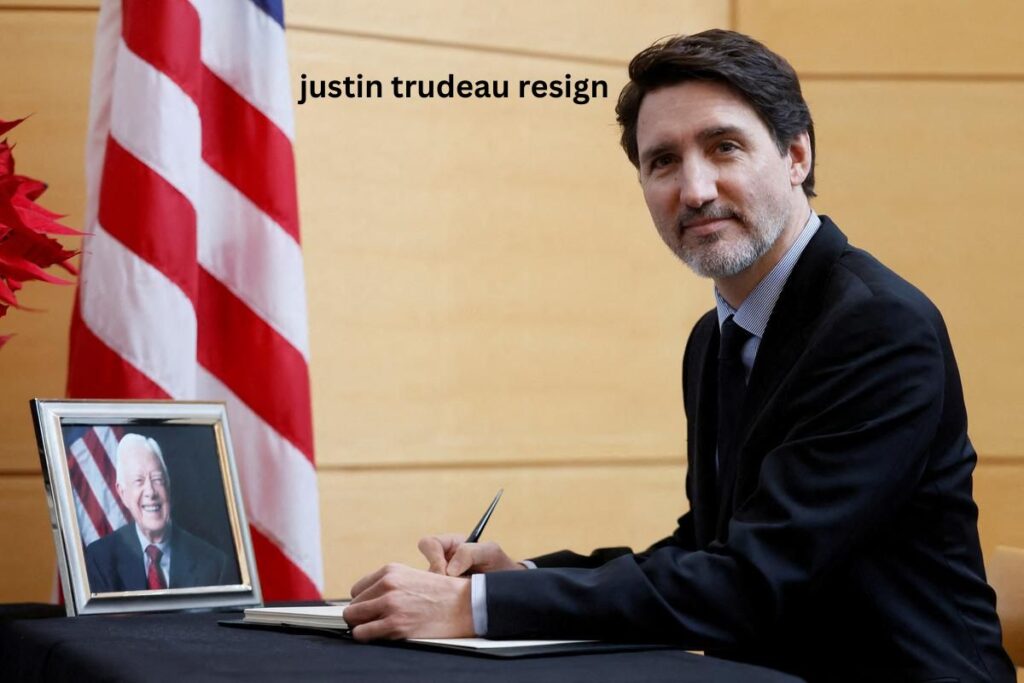Justin Trudeau’s decision to resign as Canada’s Prime Minister marks a pivotal moment in the country’s history. Known for his charisma and progressive policies, Trudeau’s departure has left many wondering about the reasons behind his decision and its implications for the nation’s future. Let’s take a closer look at his legacy, the factors leading to his resignation, and what lies ahead for Canada.
Remembering Justin Trudeau’s Time in Office
Justin Trudeau’s journey as Prime Minister began in 2015, when he inspired millions with promises of hope and change. As the son of former Prime Minister Pierre Trudeau, he carried a legacy that resonated deeply with Canadians. During his tenure, Trudeau introduced significant reforms, such as legalizing recreational cannabis, implementing a carbon tax to combat climate change, and advocating for diversity and inclusion.
Despite these achievements,Justin Trudeau faced several controversies that challenged his leadership. The SNC-Lavalin affair and the WE Charity scandal brought intense scrutiny. Even with these setbacks, he managed to secure reelection in 2019 and 2021, albeit with reduced majorities.
Why Justin Trudeau Resigned
Justin Trudeau’s decision to step down was not entirely unexpected. Several factors contributed to his resignation, shedding light on both personal and political dynamics.
Feeling the Weight of Declining Popularity
In recent years, Justin Trudeau’s approval ratings steadily declined. Critics often pointed to his government’s struggles with issues such as housing affordability, strained healthcare systems, and Indigenous reconciliation efforts. These persistent challenges may have eroded public confidence, making it harder for Trudeau to maintain his appeal.
Pressure from Within the Liberal Party
Discontent within the Liberal Party had been simmering. Many believed the party needed fresh leadership to reenergize its voter base, particularly among younger Canadians. Trudeau’s decision to resign could be a calculated move to give the party time to regroup and prepare for the next election.
Personal Reflection and Priorities
After nearly a decade in office, Justin Trudeau may have sought to focus on his personal life. The relentless demands of leading a nation and enduring constant public scrutiny can take a toll. By stepping down, he might aim to spend more time with his family or explore opportunities outside politics.
How Trudeau’s Resignation Affects Canada
The resignation of such a prominent figure brings both challenges and opportunities. For the Liberal Party, the immediate task is to choose a successor who can unify the party and address voters’ concerns effectively. Possible candidates, such as Deputy Prime Minister Chrystia Freeland, will play a key role in shaping the party’s future.
For opposition parties, this moment provides a chance to gain momentum. Pierre Poilievre, leader of the Conservative Party, has been vocal about offering a different vision for Canada. Trudeau’s departure could strengthen their position in the next election.
Canada’s Changing Role on the World Stage
Justin Trudeau’s influence extended beyond Canada’s borders. As a staunch advocate for climate action, gender equality, and multilateral cooperation, he was a familiar face at international summits. His resignation leaves questions about Canada’s global leadership. How the new Prime Minister navigates international relations will determine Canada’s continued role on issues like climate change and human rights.
The Road Ahead for Canada
Canada now faces a moment of reflection and renewal. With Trudeau stepping aside, the country has an opportunity to reassess its priorities. Critical issues such as economic recovery, healthcare reform, and addressing climate change will remain at the forefront. A new leader must tackle these challenges while restoring public trust.
As for Trudeau, his next chapter remains uncertain. Many speculate he could take on roles in global advocacy or international organizations, continuing to champion causes he is passionate about.
Conclusion
Justin Trudeau’s resignation marks the end of a significant chapter in Canadian politics. His leadership brought transformative policies and intense debates, leaving a legacy that will be studied for years to come. While his time in office inspired both admiration and criticism, his departure offers a fresh start for the Liberal Party and the nation.
As Canada moves into a new era, the impact of Trudeau’s leadership and his decision to step down will undoubtedly shape its political and social fabric. The coming months will reveal how Canada’s leaders and citizens navigate this pivotal moment in the country’s history.

